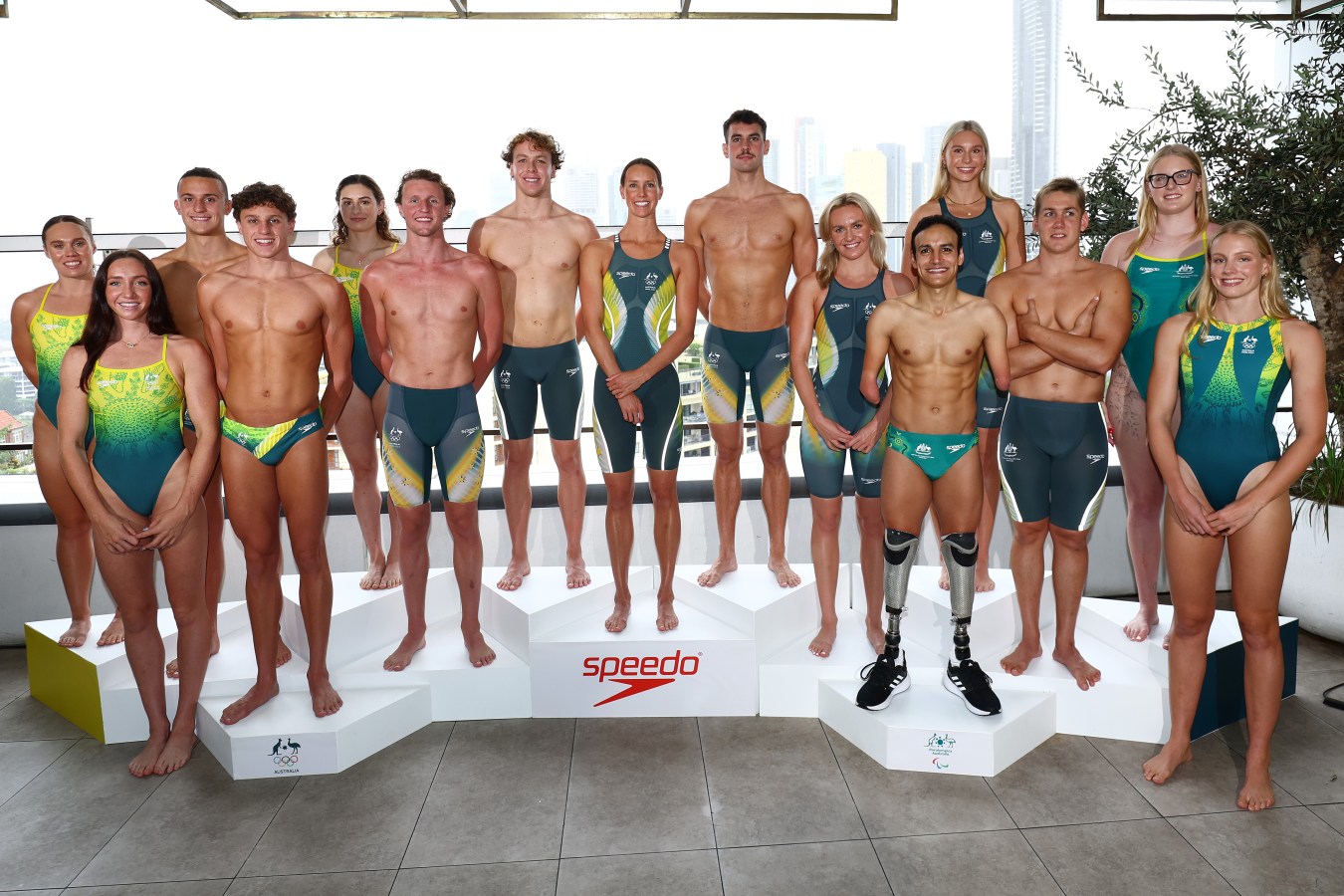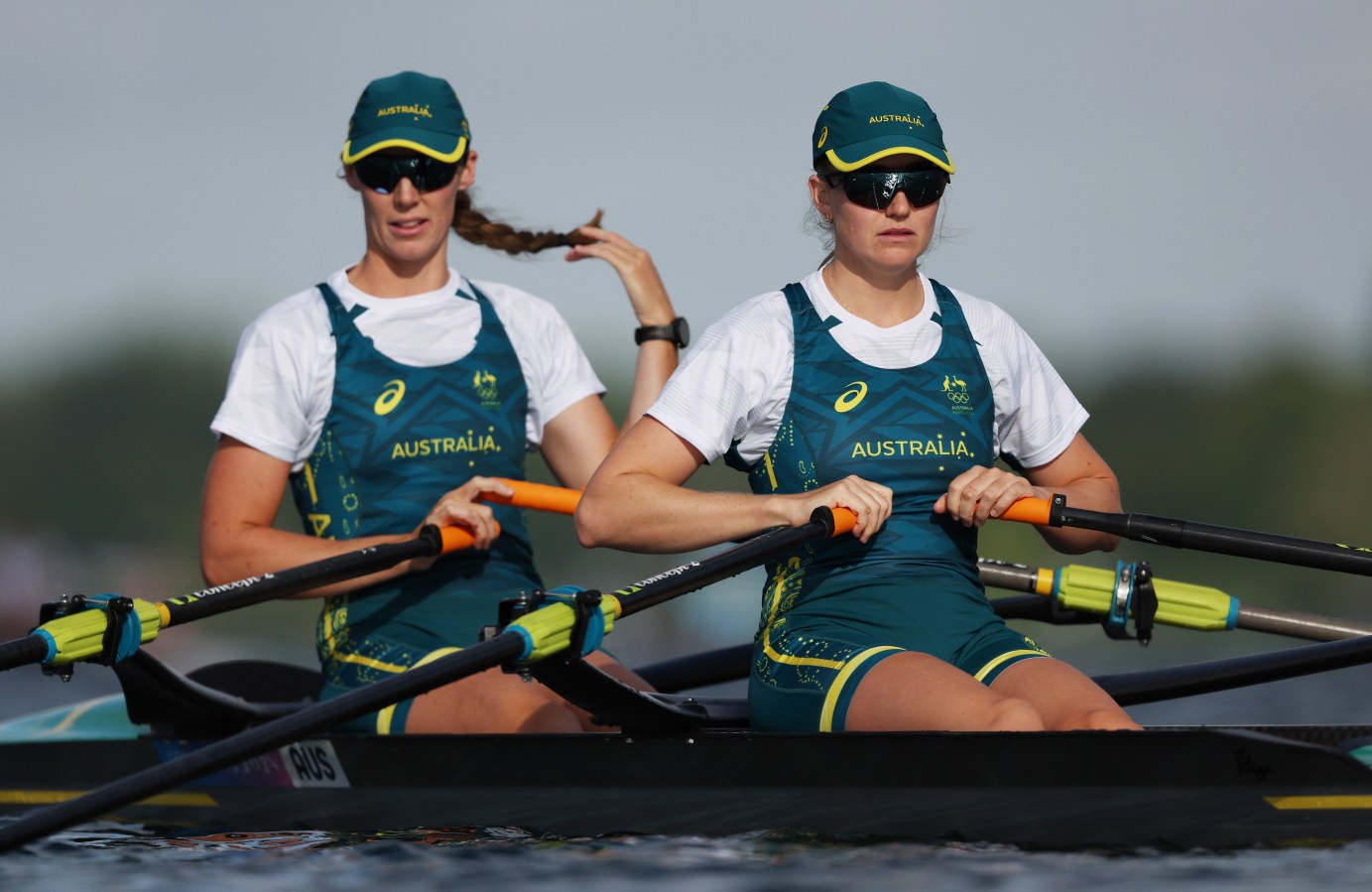“The game they play in heaven” is experiencing a kind of publicity hell in Australia despite solid successes outside the marquee professional men’s squad. Rugby Australia’s CEO Phil Waugh reveals how the gold jersey can shine bright again.
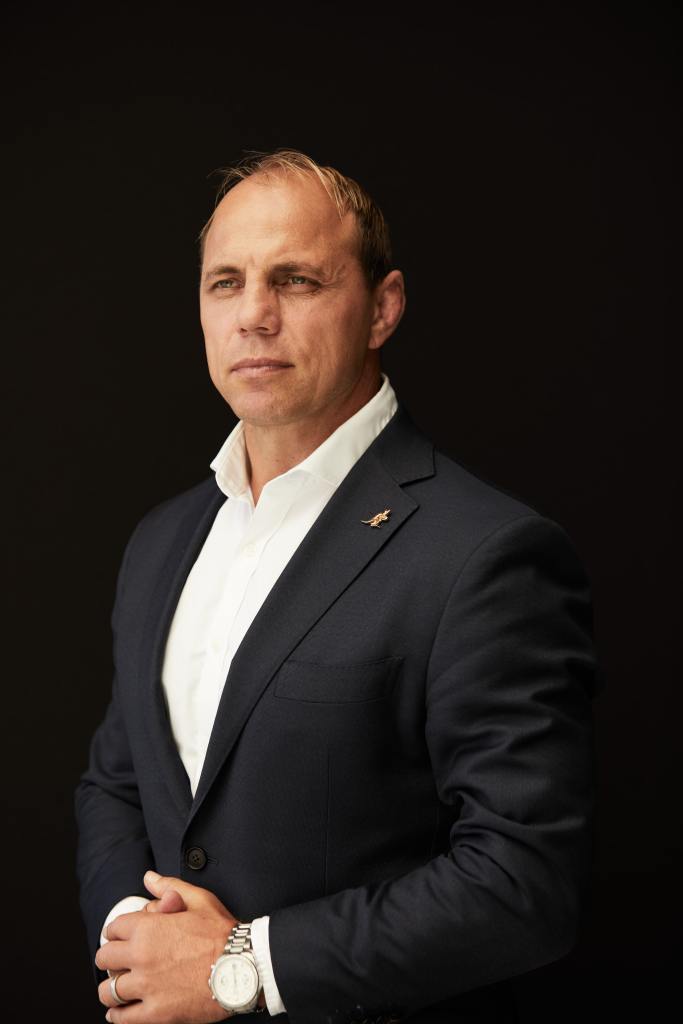
It was visceral. That kick. English fly-half Jonny Wilkinson fired a precision drop goal in the final seconds of extra time in the 2003 Rugby World Cup final in Sydney against the host nation to break the tie and take the trophy.
It was the first time England won it since the World Cup started in 1987.
I remember exactly where I was, who I was with, and everyone’s reaction to it – tears and angst. But there was an underlying frisson at having seen something special. It was a match only rugby could deliver with its arcane rules, extreme physicality, and partisan passions – hope, disappointment, hope again and finally, despair. But we were left aching for the next Wallabies vs Lions test match – for a shot at revenge.
More than 20 years later, I’m talking to Phil Waugh. At the time, he was a 24-year-old flanker and upcoming Wallabies marquee player. Now he’s the CEO of Rugby Australia, and we’re having a conversation that oddly resonates back to that kick.
I ask him what was a pinnacle moment in his career, and he cites, surprisingly, that 2003 World Cup. It wasn’t because we got pipped in the final, obviously, but because that tournament represented a moment where the joy in the sport transcended the result.
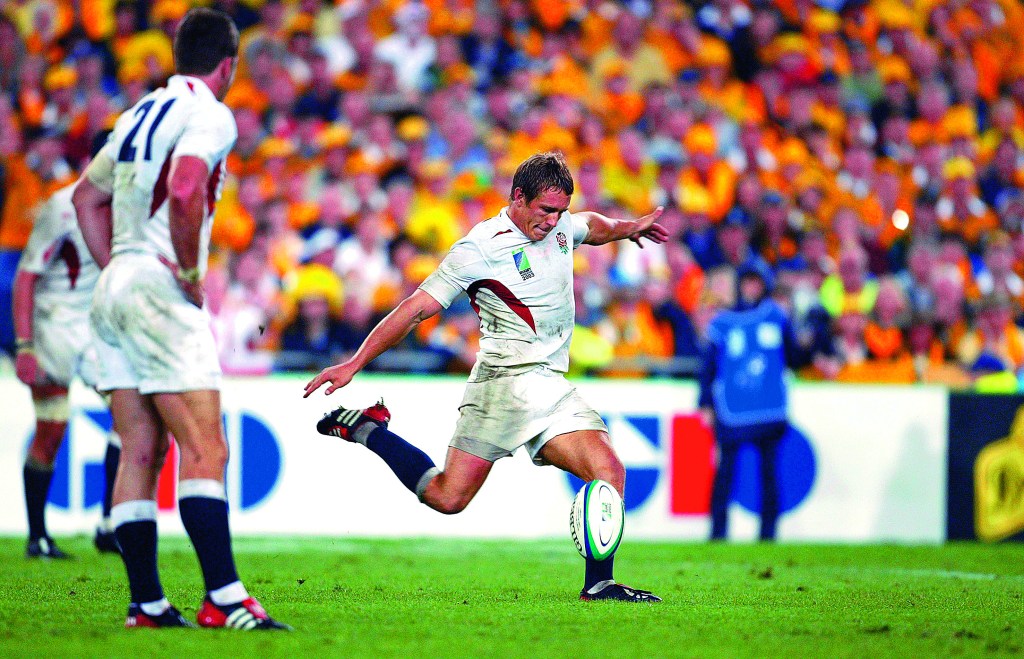
“The whole country got behind us. It wasn’t just rugby supporters – how we ignited Australia and brought [the country] on the journey was pretty special,” Waugh remembers. But what was more important was the Wallabies proved they had a serious, world-class squad and according to Waugh: “you always hope your best is yet to come”.
Australian Rugby is arguably at a nexus. The Wallabies have had difficulties with performance and changes in key personnel – most notably, coach Eddie Jones left and went to Japan late last year shortly after the team had a, well, let’s say, sub-optimal, World Cup. There’s been the predictable bad press that goes with that. But dig beneath the headlines, and the story is more nuanced.
Sure, both Waugh and his fellow ex-Wallaby and now Rugby Australia Chair, Dan Herbert, agree there’s much to be done at this juncture – even relatively young marque players such as Allan Ala’alatoa see a more optimal path ahead for the Wallabies.
But look to Rugby Sevens. Both the Australian women’s and men’s teams made the finals in Perth in January, and, at the time of going to press, the women’s team was ranked number one in the world, and the men were ranked number three. Late last year, the Wallaroos convincingly defeated Wales and France in the WXV1 and are sitting at number five on World Rugby rankings.
Bleeding for your country
No one’s denying the importance of the national men’s XV squad, the iconic status of that team, nor the ownership that many Australians feel they have of it.
Being mercenary, approximately 60% of Rugby Australia’s revenue can be sourced back to it. (Super Rugby accounts for about 20%).
So rather than dwelling on what’s happened, I asked Waugh – who was appointed CEO last June, Herbert – who was made Chair in November – and a Wallabies captain, Ala’alatoa, what needs to be done to turn the fortunes of the Wallabies around.
Waugh is unequivocal:
“Hope’s a wonderful thing,” he says. “So, you might not need [a] 50% [win rate], but you [do] need a team that represents what Australia has been so proud of on the sporting field, and that’s people putting their body on the line for their country, bleeding for their country, the-never-say-die attitude, everything that encapsulates the Australian culture, not just an Australian rugby culture, but Australian culture.”
And while sacrifice and playing for the love of sport and country is noble, Waugh is a realist and points out that performance (AKA “winning”) at the Wallabies level is key to retaining fans and maintaining revenue – to pay for everything else.
“We often get criticised about ‘how do we fund community [rugby] more?’ I’d love to fund community more, but we need to ensure that we’re actually driving revenue through the performance of our men’s 15-a-side team,” he says.

Dan Herbert is also adamant about the importance of the Wallabies to rugby’s broader success.
“If we can get the Wallabies to win, and they’re the money makers, then that helps the code because then we have more money, we then have more fans, we have more players wanting to play because they’re seeing the flagship team [win],” he says.
“There’s a lot of good things happening. [But what] drives public sentiment around the game is [that] the Wallabies bombed out of the World Cup. Very rarely are you hearing people say, how good are the women’s Sevens going? How good are the men’s Sevens? What about the Wallaroos knocking over France?
“We’ve got an increase in participation. I wouldn’t say our women’s game is exploding, but it’s going very well. But if you talk to the man or the woman on the street, it’s ‘how bad is rugby’? Ninety per cent of the game is outside the Wallabies, but people still come back to that.”
“Simplistically, I look at, well, if we just fix the system that feeds [the Wallabies], it fixes the financial metrics, and it fixes the sentiment of the game, and it can inspire more
people to play.”
Herbert also stressed the need to contemporise the game, particularly the professional arm’s management model.
He wants to ensure the Super Rugby franchises and the Wallabies have that “uncertainty of outcome” that they are winning at least 50% of the games.
“That’s the theatre people want to see. That’s what sponsors want to get behind,” he says.
“To get to that position requires a change in how Super Rugby clubs integrate with the national framework. At the moment, you have a Super Rugby product on one side, and you have a Wallaby/Wallaroo product on the other. While the same athletes are transitioning into the national team, there’s a gap, and they’re not preparing the players for test football.
“If we can get to the point where they are ready-made, then you’d look at it as “Rugby Inc”. They are preparing Wallabies and Wallaroos to play the world’s best. That’s the mind shift we need to make.”
It’s about more than the World Cup
Waugh says there’s another factor at play.
“I think we’ve had a history of saying it’s all about the World Cup,” he says. “[But] I think we’ve been too focused on [that]. There’s nothing more important than winning every test match.”
He cites the example of Ireland, where the game is thriving. The national team was ranked number one in the world in 2022 after beating New Zealand’s All Blacks in a stunning test series. But Ireland has never been past a quarter-final in a World Cup.
What they have been doing, however, is winning consistently between World Cups.
As a result, Waugh says, participation and revenue have increased across the Irish rugby system. The learning for the Wallabies is to set up a program, a structure and a system that is winning consistently and is not focused too much on winning World Cups.
What does a winning strategy look like?
In December, Waugh appointed World Rugby administrator Peter Horne as director of high performance, tasked with, among other things, playing a pivotal role in building a structure and selecting staff around the Wallabies.
“Historically, the Wallaby head coach and the Wallaby environment has sat as almost a silo outside of high performance,” Waugh says. “[But] I’m a big believer that the Wallabies need to be part of a broader high-performance structure and system.”
Waugh also announced the appointment of New Zealander Joe Schmidt as Wallabies head coach in January. Schmidt will report to Horne in a bid to further strengthen the high-performance structure. Tellingly, Schmidt was Ireland’s head coach for more than six years, winning three Six Nations titles. On Schmidt’s appointment, Waugh said: “Given our stated plan to build a unified Australian Rugby system, Joe’s experience with Ireland and New Zealand – two of the most aligned Rugby nations in the world – will, no doubt, prove valuable.”
Waugh says discipline is critical in building the rest of the off-field team to put the Wallabies back on track.
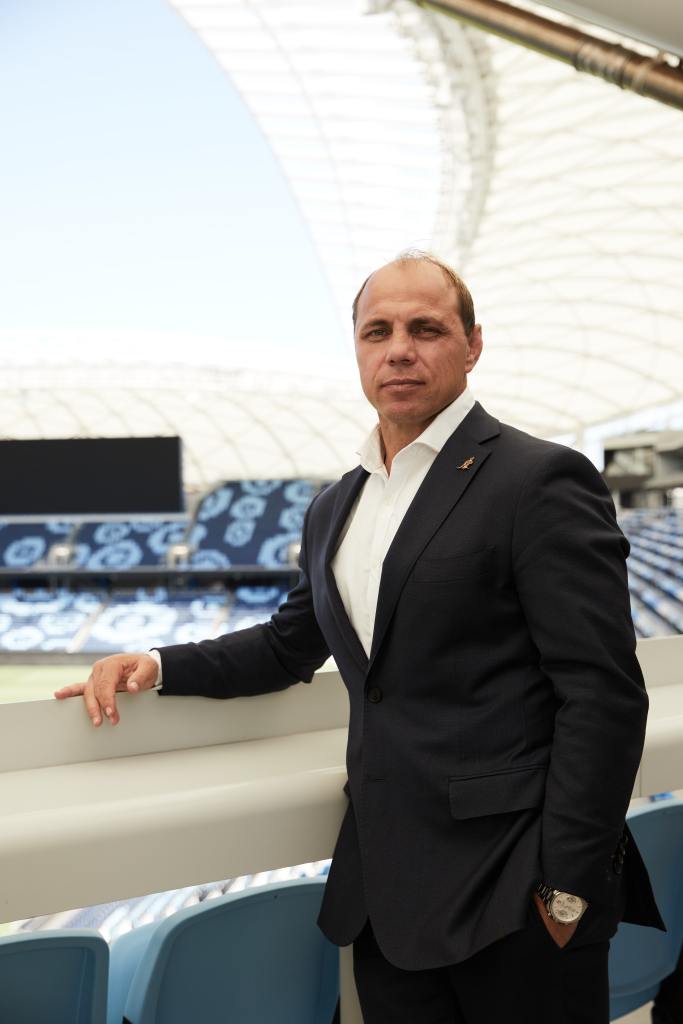
“[It’s] discipline around our appointment process, recruitment process and then having the right people in the right roles with the right structure,” he says.
“That’s the off-field stuff in terms of structuring it correctly and getting the world’s best people in those roles. I think we can get granular into the playing side, but I believe that if you’re really disciplined off the field, then you’re disciplined and successful on the field.
“Historically, we’ve made decisions around keeping people in positions without the appropriate governance and process. I’m very confident that we’re putting the right people in the right places and the right structure to drive a sustainable performance rather than looking for small sugar hits that create a lot of noise but aren’t necessarily sustainable strategies.”
Dan Herbert articulates his vision for the code as having an “aligned high-performance system that creates tough, smart, innovative players and having strong leaders within the management.”
“At the moment, we’re fighting with one hand tied behind our back against these really well-organised international teams like New Zealand. If we can fix that, it gives us a fighting chance.”
But how do you pay for it?
In the short term, Waugh says, Rugby Australia has taken out an $80m debt facility. He maintains it’s largely to help “stabilisation” and ensure the Wallabies are set up for the 2025 British & Irish Lions tour. But will this be enough?
“That debt facility is enough to get us through to the 2026 season. Ideally, we’re thinking about it as by the end of 2025, we want to be debt-free and in a sustainable model and system that will drive world-class performances at an international level through into 2026 and beyond,” he says.
“Otherwise, we’ll end up in a position where we have to draw down more money in 2026.”
He cites the two big revenue events of the Lions tour and the home World Cup in 2027 and says he is passionate about setting the game up “financially in perpetuity” with those events.
“So, when you say is $80 million enough, my answer is that I want to be setting the game up financially going forward, and if we draw more than that and use the revenues of the Lions tour and World Cup just to pay down the money we’ve drawn, then to come out of 2027 square with no money in the bank and no community legacy fund, then I would say that would be an unsuccessful management of the organisation.”
“You need a team that represents what australia has been so proud of on the sporting field, and that’s people putting their body on the line for their country, bleeding for their country, the never-say-die attitude.”
A player’s perspective
If Australian Rugby is going to hit its dream-team heights last seen at the turn of the century, then it will be people like Allan Ala’alatoa who’ll be at the coal face.
Born in Sydney into a Samoan family, ACT Brumbies prop Ala’alatoa has captained the Wallabies, and his brother Michael has captained Manu Samoa – a team his dad, Vili, played for. If you want an opinion from Oceania rugby royalty – this bloke’s not a bad place to start.
It’s a trope, but no less true for being so, that the team that won the 1999 World Cup, which included John Eales, Matt Burke, George Gregan, Dan Herbert, Tim Horan, Toutai Kefu and Stephen Larkham, inspired a generation of players including Ala’altoa.
“Culture! That’s it there,” he says. “It’s the icon that they were to our country. I would go early morning on a Saturday and watch club footy, and then everyone’s at the pub watching the Wallabies play at 7.45 pm, and you’ve got the whole pub filled and cheering them on. When I think about it, [that’s] really the reason I wanted to be a Wallaby. Everyone was backing that team because of how great they were and how entertaining they were.”
Those days inspired Ala’alatoa to become a Wallaby. Still, when you ask him about what it felt like to captain the national team, you can see in his face an almost incredulous expression – this was a seemingly unobtainable dream come true.
“I always dreamed about being a Wallaby, but I thought being a captain of the Wallabies was too far. It’s probably something that I could never do,” he says.
“Achieving that was a massive personal milestone. [For my dad] it was very emotional [and] my mother as well. It was in the spring tour, so [dad] couldn’t come over, but it was that weekend, the Wallabies played, and I was captain, then my brother played, and he was captain [of Manu Samoa]. It was a special time for our family to have two sons, captaining our respective countries.”
Talking to Ala’alatoa, his passion is palpable; his love of the game, of representing his country, is worn on his sleeve – which may explain some of the reason he has the apocryphal nickname “Captain Grumpy”.
I asked him about his future.
“I wouldn’t want to be anywhere else but here with the boys – to be a part of the Wallaby Squad who want to reignite rugby in Australia. That’s where I want to be.”
And the future for Australian rugby?
“It all comes back to winning. And with that, you get your future generations wanting to play rugby. You get your pubs filled on the weekends with people wearing the gold jersey, and you get the stories on the back page. If I were to put a number on it, it’d be over 80% [wins].”


